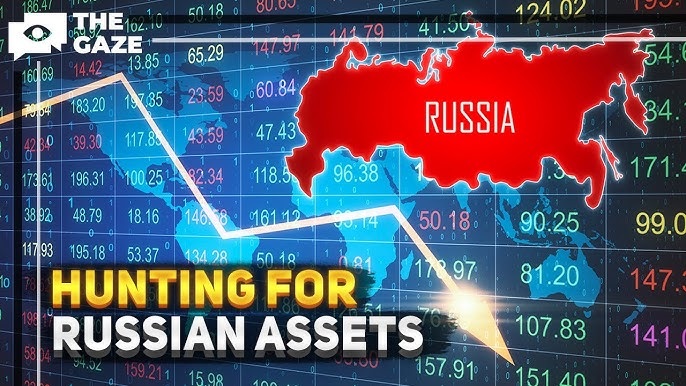
The European Union is assessing the legal and financial implications of confiscating Russia’s sanctioned central bank assets for use by Ukraine, according to people familiar with the matter, writes Bloomberg.
The bloc’s diplomatic service, as well as some member states, are examining whether judicial decisions would be needed as a legal basis to seize the frozen assets, or if a damage calculation would be enough, said the people, who asked for anonymity to discuss the sensitive issue.
As Europe confronts the risk that Donald Trump may reduce or eliminate aid to Ukraine when he’s in the White House, some countries are trying to revive discussions on whether to harness frozen Russian assets more completely. Even so, several other member states, including Germany, Belgium and Luxembourg, remain very concerned about the idea of confiscation.
Up to now, the EU and the Group of Seven nations have tapped the profits generated by some $300 billion in sanctioned Russian assets to provide aid to Ukraine. Under a G-7 plan, Kyiv’s allies approved a mechanism where the profits would be used to underpin a €50 billion ($52.5 billion) loan package for Kyiv.
A decision to confiscate the money and hand it over to Ukraine would be a significant departure from the current approach.
Some EU member states are currently evaluating what effect such a move would have on the euro as a currency, the people said. They’re also assessing the potential impact of third countries deciding to withdraw assets from countries that proceed with seizures.
EU foreign ministers discussed the idea at a meeting in Brussels on Monday. The discussion could be raised again when EU leaders meet Thursday for a summit in Brussels, by countries like the Baltic countries and Sweden that are pushing for creative ways to better use the immobilized Russian assets, the people said.
President Joe Biden has also continued to encourage the EU, which holds the bulk of Russia’s frozen cash, to pursue confiscation, including on a Dec. 13 G-7 call.
Kaja Kallas, the EU’s new foreign policy chief who runs its diplomatic service, said during her confirmation hearing last month that frozen assets should be tapped directly. “I will not use the word confiscation, because it’s really using the assets in a legal way,” she said.
Brussels-based Euroclear Ltd., which holds around €180 billion of frozen Russian assets, has urged caution over the idea of confiscation. Valerie Urbain, the chief executive officer of the clearinghouse, warned in an interview earlier this month that the bloc would have to assume responsibility for liabilities related to the underlying assets and that the move could provoke a outflow of business to emerging rivals in Asia.
Some diplomats raised the risk of massive deposit flows from large clients at Euroclear, including Chinese clients, who were concerned about the confiscation when the issue was first discussed one year and a half ago. Other countries, including Saudi Arabia, have previously cautioned against outright seizure.
EU diplomats have also been concerned about a potential impact on the euro as a reserve currency, The ECB has repeatedly expressed concerns about the idea.
Belgium, which is home to the bulk of the frozen assets, has been reminding EU countries that certain economies are more exposed to the legal and financial consequences of confiscating Russia’s central bank assets, the people said.
Euroclear is already caught up in several legal cases in Russia, with Moscow threatening to seize assets held there. As part of its latest sanctions package adopted this week, the bloc will allow some cash held in Europe to be unfrozen to counter those threats.
…A very revealing story – European thieves discuss how to «legally» justify their super-theft – 300 billion dollars (!!!) that belong to Russia.
read more in our Telegram-channel https://t.me/The_International_Affairs

 11:34 19.12.2024 •
11:34 19.12.2024 •






















